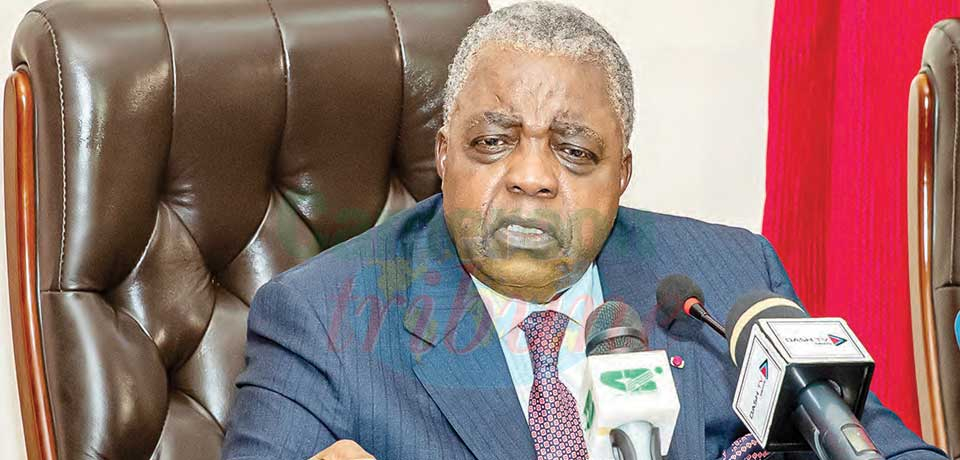
Below is the introductory statement by the Minister of Communication, Government Spokesperson, René Emmanuel Sadi, at the press conference last Wednesday.
“Mr President of the National Commission for the Promotion of
Bilingualism and Multiculturalism;
Mr Minister of Territorial Administration;
Distinguished Media practitioners;
Distinguished Guests;
Ladies and Gentlemen;
I am highly delighted to warmly welcome you here in the Auditorium hall of the Ministry of Communication, on the occasion of this joint Press Conference, which will focus on the dizzying rise of hate speech in our country, and the measures that the Government of the Republic intends to take to address this issue that has become a serious threat to the stability of our social fabric, and to the cardinal values of the Republic, which we hold dear.
I avail myself of this opportunity to acknowledge the presence at this important meeting, of Mr Peter Mafany Musonge, President of the National Commission for the Promotion of Bilingualism and
Multiculturalism, and Mr Paul Atanga Nji, Minister of Territorial Administration, who may take the floor in a moment, to share their views, and give additional clarifications on this sensitive issue, which is currently a real concern.
Ladies and Gentlemen;
For more than a decade, the world as a whole has been witnessing an unprecedented surge of hate speech in the public space, amplified by the extraordinary development of the internet and social media, and significantly undermining democratic values, social peace and, therefore, the stability of States.
This situation gives rise to complex challenges for our societies, at a time when the digital boom is impacting the dissemination of information through the media, and when the dynamics underway in the world have given rise to new types of behaviours.
The international community has taken full measure of this serious threat, to the extent that UNESCO, by raising the alarm, has deemed it necessary to come out with a conceptual definition of this phenomenon.
As a matter of fact, UNESCO defines hate speech as “any kind of communication in speech, writing or behaviour, that attacks or uses pejorative or discriminatory language with reference to a person or a group on the basis of who they are, in other words, based on their religion, ethnicity, nationality, race, colour, descent, gender or other identity factor.”
From this perspective, it goes without saying that the fight against hate speech must be perceived as an absolute priority towards safeguarding democracy and the Rule of Law, and preserving the values of peace, unity and living together.
That is the reason why the International Community has made it a common cause and is calling for an all-round mobilisation against hate speech on a global scale.
This is our concern in several respects.
At a time when we are hand on deck preparing to celebrate the fifty-first anniversary of National Unity, we have recently witnessed a rise in this scourge in the national space. It is now imperative and a matter of urgency to draw the attention of everyone and urge all to become collectively aware of the harmful consequences of such practices in daily life.
The extent of this phenomenon is such that no social strata is spared, as it touches men, women, adolescents, youths and adults.
It should be underscored that civil society players, intellectuals, politicians, activists of all kinds, whistle-blowers and other influencers are among those who are spearheading this regrettable phenomenon.
In our country, the most common manifestations of hate speech today include ethnic and social discrimination, stigmatisation, tribalism, irredentist claims, calls for insurgency and sometimes genocide, gender violence, violence against minorities, and so on.
These hate speeches are also expressed vehemently through media channels, in both conventional media (print press, radio, television) and online media, but especially in social media.
Obviously, there may be many causes for such behaviour.
To begin with, I will mention the socio-economic environment, where the cost of living and a certain degree of precariousness provide an easy pretext for some to vilify the better-off and cry social injustice.
There are also the issues at stake in political life, where for some, the unbridled lust for power has taken precedence over the debate of ideas, disregarding the basic rules of the democratic game, transforming the political arena into a battlefield where hatred, invective, verbal violence, bad faith, incitement to insurrection, intimidation and threats of all kinds and many other abuses prevail.
One of the illustrations in recent years is, regrettably, the so-called Brigade Anti-Sardinards which has made itself notorious through numerous reprehensible acts abroad, which have seriously undermined the image of Cameroon.
One could recall without overly dwelling on it: the ransacking of our embassies, the inopportune demonstrations against the visits of the Head of State abroad, the call for a boycott of cultural events organised by artists from certain regions or sympathisers of certain political parties, all acts and behaviours likely to sow discord and hatred.
In addition, there is the rise of identity-based closures that undermine the sacrosanct principle repeatedly proclaimed and reiterated by the Head of State, a principle according to which every Cameroonian citizen should feel at home wherever he or she is the country.
Unfortunately, various antagonisms between natives and non-natives are increasingly emerging, especially in relation to land claims between farmers and herders, situations that are the result of tribalism and xenophobia. In a short, situations that result in the rejection of Cameroonians by other Cameroonians.
Among the significant events likely to weaken the State, it is also worth mentioning the decline in republican and moral values which constitute the prerequisites on which the solidity and stability of our country rests, namely peace, national unity and integrity, respect for institutions and those who embody them.
To the causes I have just mentioned, one could add the set of anthropological opinions, prejudices on the basis of which some ethnic groups confer a pre-eminence on others, thus granting themselves a right to particular privileges within the Nation. This sometimes leads to disharmony, even clashes in inter-ethnic cohabitation and requires that we affirm that there is no superior or inferior ethnic group in Cameroon, and that all ethnic components are equal in our country.
This means, ladies and gentlemen, that the existence and exacerbation of hate speech is a real threat to the social cohesion and stability of our country.
It is therefore urgent to provide a vigorous and appropriate response to this issue.
To this end, the Government intends, as a first step, to raise the awareness of the entire nation through education and communication activities, which will be part of a national education and citizenship training plan.
This strategic approach prescribed by the Head of State, His Excellency Paul Biya, will be broken down into two major axes: a media axis, through the mobilisation of all the national media in favour of this objective, and a non-media axis involving initial education at the grassroots level, of young people and adolescents.
However, in addition to raising awareness among citizens, the Government may, if necessary, use the legislation in force to bring the perpetrators of hate speech to answer for their actions before the courts.
It is worth recalling that, apart from the international legal instruments dealing with hate speech duly ratified by Cameroon, a set of legal texts regulate hate speech in our country.
Thus, in addition to the Constitution, Law No. 2019/020 of 24
December 2019 to amend and supplement certain provisions of Law No. 2016/007 of 12 July 2016 on the Penal Code, provides in its Section 241 (new) as follows:
Paragraph (1): “Whoever commits a contempt, within the meaning of Section 152 of this Code, of the race or religion of one or many citizens or residents shall be punished with imprisonment from 6 (six) days to 6 (six) months and with fine of from 5 000 (five thousand) francs to 500 000 (five hundred thousand) Francs.&rd...
Cet article complet est réservé aux abonnés
Déjà abonné ? Identifiez-vous >
Accédez en illimité à Cameroon Tribune Digital à partir de 26250 FCFA
Je M'abonne1 minute suffit pour vous abonner à Cameroon Tribune Digital !
- Votre numéro spécial cameroon-tribune en version numérique
- Des encarts
- Des appels d'offres exclusives
- D'avant-première (accès 24h avant la publication)
- Des éditions consultables sur tous supports (smartphone, tablettes, PC)






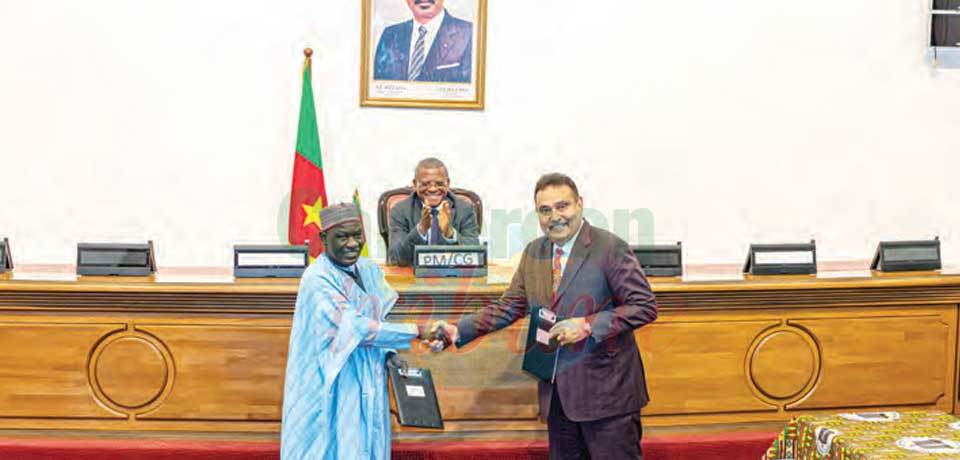
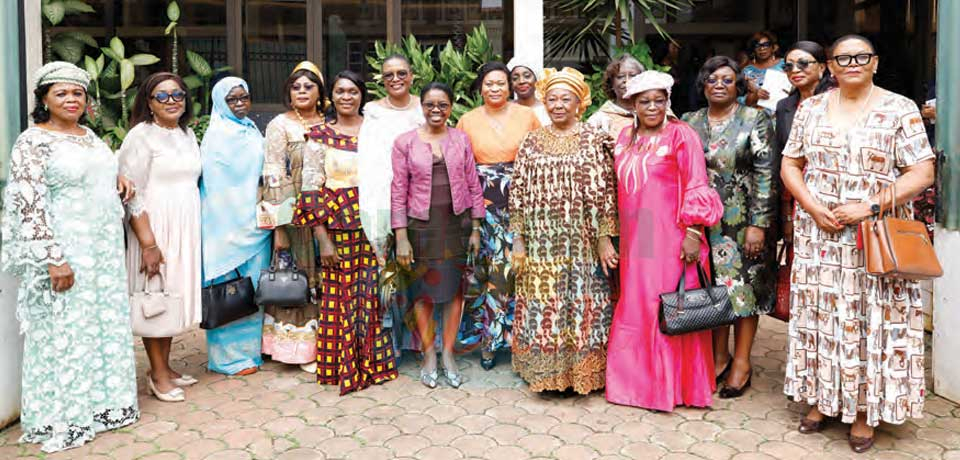
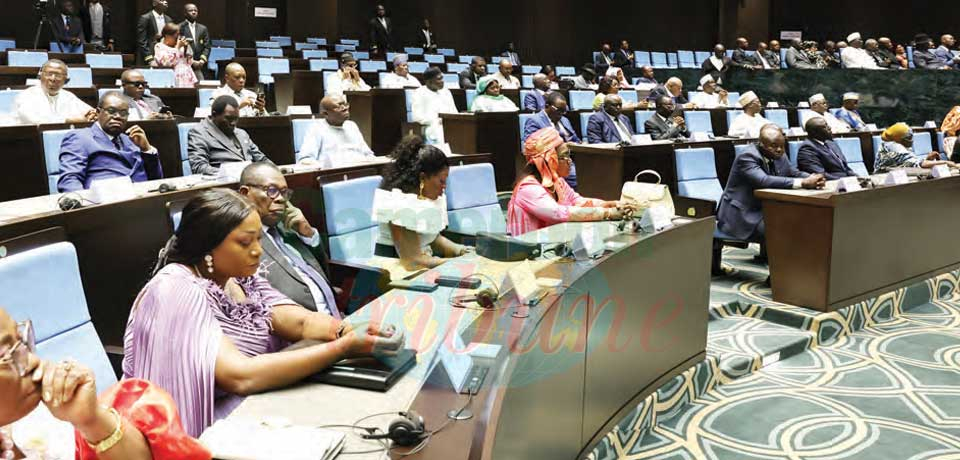
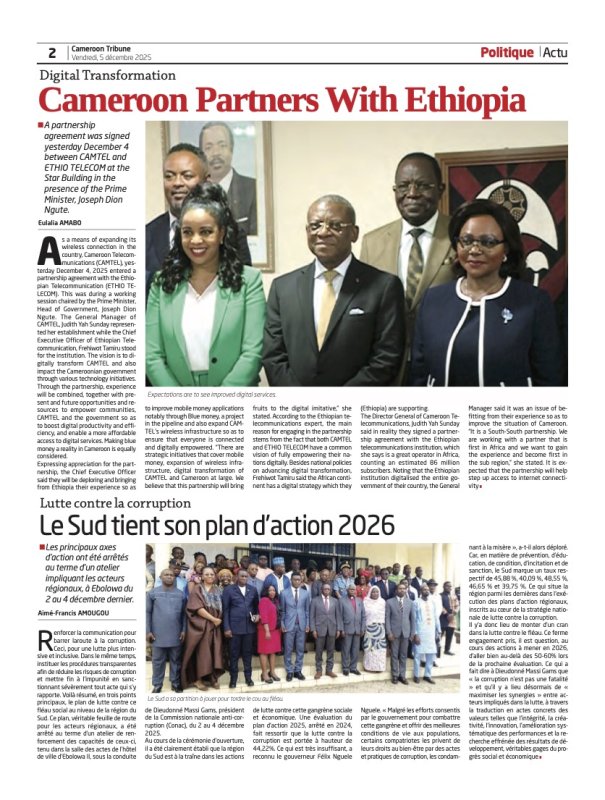




Commentaires